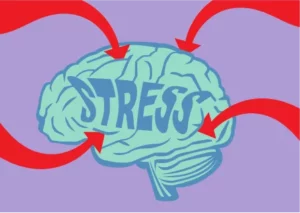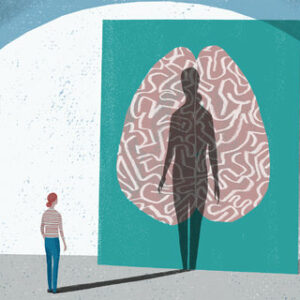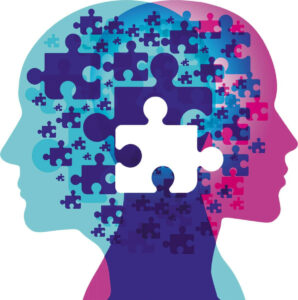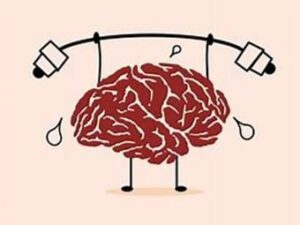We all know that stress isn’t good for us. It can cause all sorts of problems in our lives, both physically and emotionally. But what are the side effects of stress? How does it affect our bodies and minds? In this blog post, we will discuss the side effects of stress in detail. We will also talk about how to reduce the amount of stress in your life so that you can live a healthier and happier life!
Contents
Defining Stress
The first step in understanding the side effects of stress is to define what stress actually is. Stress is your body’s response to any type of demand or threat. When you feel stressed, your body releases a hormone called cortisol. Cortisol helps you to deal with stressful situations by giving you extra energy and making you more alert. In short-term situations, this can be helpful. But when you’re constantly under stress, it can take a toll on your health.

There are two main types of stress: acute stress and chronic stress. Acute stress is the kind of stress that we all experience from time to time. It’s usually caused by an upcoming deadline at work or a fight with a friend. Acute stress is generally short-lived and not harmful to your health. Chronic stress, on the other hand, is much more serious. It’s the kind of stress that you experience on a daily basis, and it can have a major impact on your health. Chronic stress is often caused by things like job insecurity, money problems, or relationship difficulties.
Signs And Symptoms
Stress manifests itself in different ways for different people. But there are some common signs and symptoms that you can look out for. These include:
- Feeling anxious, irritable, or moody
- Feeling overwhelmed or hopeless
- Difficulty sleeping
- Trouble concentrating
- Memory problems
- Headaches
- Mood swings
- Stomach problems
- Low energy levels
- Muscle tension or aches
- Worsening of chronic health problems
This is not an exhaustive list, and you may experience other symptoms as well. If you’re experiencing any of these symptoms on a regular basis, it’s important to take action to reduce your stress levels.
Causes
There are many different things that can cause stress in our lives. Some of the most common causes include:
- Workplace stressors (such as long hours, tight deadlines, and office politics)
- Family responsibilities (such as caring for children or aging parents)
- Relationship difficulties (such as communication problems or conflict)
- Financial worries (such as job loss, debt, or unexpected expenses)
- Life transitions (such as moving to a new home or starting a new job)
- Health-related stress (be caused by a chronic health condition, such as arthritis, cancer, or heart disease)
- Mental health concerns (such as anxiety or depression)
- Emotional stress (due to grief, loss, or trauma)
It’s important to remember that not all stress is bad. In fact, some stress can be good for us. A certain amount of stress can motivate us and help us to achieve our goals. It’s only when the stress becomes too much to handle that it starts to have negative effects on our lives.
Side Effects Of Stress
Now that we know the signs and causes of stress, let’s take a look at the side effects of stress. These include physical, emotional, behavioral, as well as cognitive effects.
Physiological Effects
The most noticeable effects of stress are the physical ones. The physical side effects of stress are well-documented. When you’re under chronic stress, your body goes into “fight or flight” mode. This means that your body releases extra cortisol and other hormones, which can lead to a number of different health problems, including:

- Increase in heart rate
- Headache
- Appetite changes
- Dehydration
- Sweatiness
- Tightness in the chest
- Fluctuations in libido
- Rise in blood pressure
- Stroke
- Digestive problems
- Release of sugar and fats into the bloodstream
- Increase in the production of stress hormones (such as cortisol)
All of these changes can have an impact on your health. Over time, they can lead to more problems and even disorders such as:
- Heart diseases
- Diabetes
- Weight gain or obesity
- Irritable bowel syndrome (IBS)
- Hypertension
- Autoimmune diseases such as rheumatoid arthritis or psoriasis
- Migraines
- Acid reflux
- PMS and other menstrual problems
- Erectile dysfunction
- Acne
- Hair loss
- Gastrointestinal issues
- Accelerated aging process
Additionally, stress can also have an impact on your immune system. When you’re constantly under stress, your body’s ability to fight off infection and disease is weakened. This can lead to a number of problems, such as:
- Frequent colds and infections
- Allergies
- Skin problems (such as eczema)
If you’re constantly getting sick or your allergies seem to be getting worse, it could be a sign that stress is taking a toll on your immune system.
Psychological Effects

In addition to the physical effects of stress, there are also psychological ones. When you’re under constant stress, it can take a toll on your mental health. Some of the most common psychological effects of stress include:
- Mood swings
- Irritability
- Anger
- Low self-esteem
- Lack of purpose
- Loneliness
- Impulsivity
- Isolation
- Loss of motivation
In severe cases, stress can even lead to more serious mental health disorders such as:
- Clinical depression
- PTSD (post-traumatic stress disorder)
- OCD (obsessive-compulsive disorder)
- Panic disorder
- Generalized anxiety disorder (GAD)
- Eating disorders such as anorexia or bulimia nervosa
- Schizophrenia
- Bipolar disorder
Chronic stress can cause mental disorders and developing mental disorders can also contribute to additional stress. This vicious loop of thoughts can quickly lead to a downward spiral if not managed correctly.
Cognitive Effects

In addition to the physical and psychological effects of stress, there are also cognitive ones. When you’re under constant stress, it can affect your ability to think clearly and make decisions. Some of the most common cognitive effects of stress include:
- Difficulty concentrating
- Memory problems
- Poor decision-making skills
- Inability to think clearly
- Racing thoughts
- Constant worrying
If you’re having trouble concentrating or making decisions, it could be a sign that stress is taking a toll on your cognitive health. Left untreated, stress can lead to more serious cognitive problems such as:
- Dementia
- Alzheimer’s disease
- ADHD (attention deficit hyperactivity disorder)
- OCD (obsessive-compulsive disorder)
In addition to disorders, cognitive ill effects of stress can also result in:
- Trouble sleeping
- Anxiety
- Paranoia
- Delusions
- Hallucinations
If you’re experiencing any of the above symptoms, it’s important to seek help from a mental health professional. Untreated stress can have serious consequences on your health and well-being.
Behavioral Effects
Finally, stress can also have behavioral effects. When you’re under constant stress, it can affect your behavior in a number of ways. Some of the most common behavioral effects of stress include:
- Withdrawing from friends and family
- Skipping meals
- Eating too much or not enough
- Not exercising at all or exercising too much
- Throwing temper tantrums
- Procrastinating
- Excessive alcohol or drug use
- Loss of interest in activities you used to enjoy
- Aggressive or violent behavior
- Indulging in risky behaviors
These behaviors can have a significant negative influence on your life. It can spread across various domains of life such as:

- Work: You may start missing deadlines, procrastinate more, or make more mistakes.
- School: Your grades may suffer as a result of not being able to focus or study properly.
- Home life: You may withdraw from your family and friends, or start fights with them more often.
- Relationships: The stress may cause you to push your partner away or become more needy. It may also give rise to issues with trust, communication, intimacy and love.
- Social life: You may start avoiding social situations or become more socially anxious. It can also lead to problems with maintaining healthy relationships.
If you find that your behavior is negatively impacting your life, it’s important to seek help from a mental health professional. Untreated stress can have serious consequences on your health and well-being.
Managing Side Effects

Now that we are aware of the side effects of stress and how dangerous it can be for our health, it is important to learn how to manage it. Some of the ways in which we can manage stress are:
- Identify the source of stress: The first step is to identify the sources of stress in our life. Once we are aware of what is causing us stress, we can start finding ways to eliminate or reduce it.
- Exercise: Exercise is a great way to release tension and improve our mood. It can also help to reduce the physical effects of stress on our body.
- Relaxation techniques: There are various relaxation techniques that can help us to cope with stress. Some of these include yoga, meditation, deep breathing exercises, and aromatherapy.
- Healthy diet: Eating a healthy diet can help to improve our overall health and well-being. It can also help to reduce the negative effects of stress on our body.
- Vent it out: Talking to someone about what is causing us stress can help to release some of the tension. It can also help us to find solutions to our problems.
- Maintain sleep hygiene: Getting enough sleep is important for our overall health. It can also help to reduce the effects of stress on our body. This involves maintaining a regular sleep schedule, avoiding caffeine and late-night TV, and creating a relaxing bedtime routine.
- Boost happy hormones: There are various activities that can help to boost our happy hormones such as endorphins serotonin and dopamine. Some of these include listening to music, spending time with friends and family, and doing things we enjoy.
These are a few tips and strategies that can help us to manage the side effects of stress. It is important to remember that we all react to stress differently and what works for one person may not work for another. However, in case your stress levels are not manageable through these ways, you may want to consult a mental health professional.
Professional Help
If you find that your stress levels are unmanageable and are negatively impacting your life, it is important to seek professional help. There are various professionals who can help us to deal with stress such as:
- Psychologists: They can help us to understand our thoughts and feelings and teach us ways to cope with stress.
- Counselors: They can provide support and guidance while we work through our problems.
- Therapists: They can help us to understand the root cause of our stress and find ways to eliminate it.
- Doctors: In some cases, our doctor may prescribe medication to help us deal with the effects of stress.
These are some of the professionals who can help us to manage the side effects of stress. They may use therapy, medication, or a combination of both to manage stress, depending upon the severity of symptoms and side effects.
Some of the most effective and common therapy approaches include:

- Cognitive-Behavioral Therapy (CBT)
- Interpersonal Therapy (IPT)
- Mindfulness-Based Stress Reduction (MBSR)
- Acceptance and Commitment Therapy (ACT)
- Psychodynamic Therapy
- Humanistic Therapy
- Expressive Arts Therapy
- Support Groups
Similarly, if your stress side effects are too severe, you might get prescription drugs. Some of the most common medicines for managing stress include:
- Anti-anxiety drugs
- Tranquilizers
- Selective serotonin reuptake inhibitors (SSRIs)
- Serotonin and norepinephrine reuptake inhibitors (SNRIs)
- Monoamine oxidase inhibitors (MAOIs)
- Benzodiazepines
- Beta-blockers
It is important to note that these should only be used as a last resort, after trying other methods to manage stress side effects. These drugs can have various side effects and may not be suitable for everyone.
If you are looking for ways to manage stress, it is important to consult a professional. They will be able to assess your symptoms and side effects and recommend the best course of treatment for you. Remember, we all react to stress differently, so what works for one person may not work for another. But with the help of a professional, you can find the treatment that is right for you!
Conclusion
While stress is a normal part of life, it’s important to manage it in a healthy way. When left unchecked, side effects of stress can have a serious impact on your physical, mental, and emotional health. If you’re experiencing any of the above symptoms, don’t hesitate to reach out for help. Remember, you’re not alone in this! There are plenty of resources available to help you cope with stress in a healthy way.
For more information, please contact MantraCare. Stress can have both physical and mental effects on the body, leading to negative consequences such as anxiety, depression, and even physical illnesses. If you have any queries regarding Online Stress Counseling experienced therapists at MantraCare can help: Book a trial Stress therapy session


